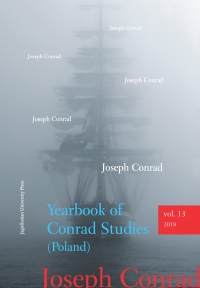The Secret Agent: A Far from Simple Tale
The Secret Agent: A Far from Simple Tale
Author(s): Gerard KilroySubject(s): Metaphysics, Political Philosophy, Political history, Novel, Polish Literature, 19th Century, Ontology, British Literature
Published by: Wydawnictwo Uniwersytetu Jagiellońskiego
Keywords: terrorism; Nihilism; Irish Fenians; absurdity; parasites; idleness; ‘rules of the game’; surrealism; metaphysical; feminism; heroines; Victory; madness; despair; Russia;
Summary/Abstract: This article examines Conrad’s novel in the light of the Irish Fenian bombing campaign of 1881-1885. Conrad’s avoidance of any mention of their destructive methods and not unreasonable political objectives, allows him to focus on the absurdity of the Russian Nihilists, also resident in London at this time: their idle, parasitic and despairing devotion to indiscriminate destruction. While the first half of the novel is a metaphysical analysis of evil, where passive men do nothing, the second half is determined by its heroine, the active agent, Winnie, who invites comparison with Tess of the D’Urbervilles, shares with Lena in Victory the distinction of dying in a just cause, and satisfies the reader’s desire for a justice which neither the police nor the government is willing to offer. Conrad traces the roots of indiscriminate terrorism to Nihilist despair and Russian willingness to use London as a stage for its states-sponsored terrorism. His analysis of ‘the rules of the game’ agreed by security services, spies and terrorists, is as relevant today as it was in 1907.
Journal: Yearbook of Conrad Studies (Poland)
- Issue Year: 2018
- Issue No: XIII
- Page Range: 55-64
- Page Count: 10
- Language: English

